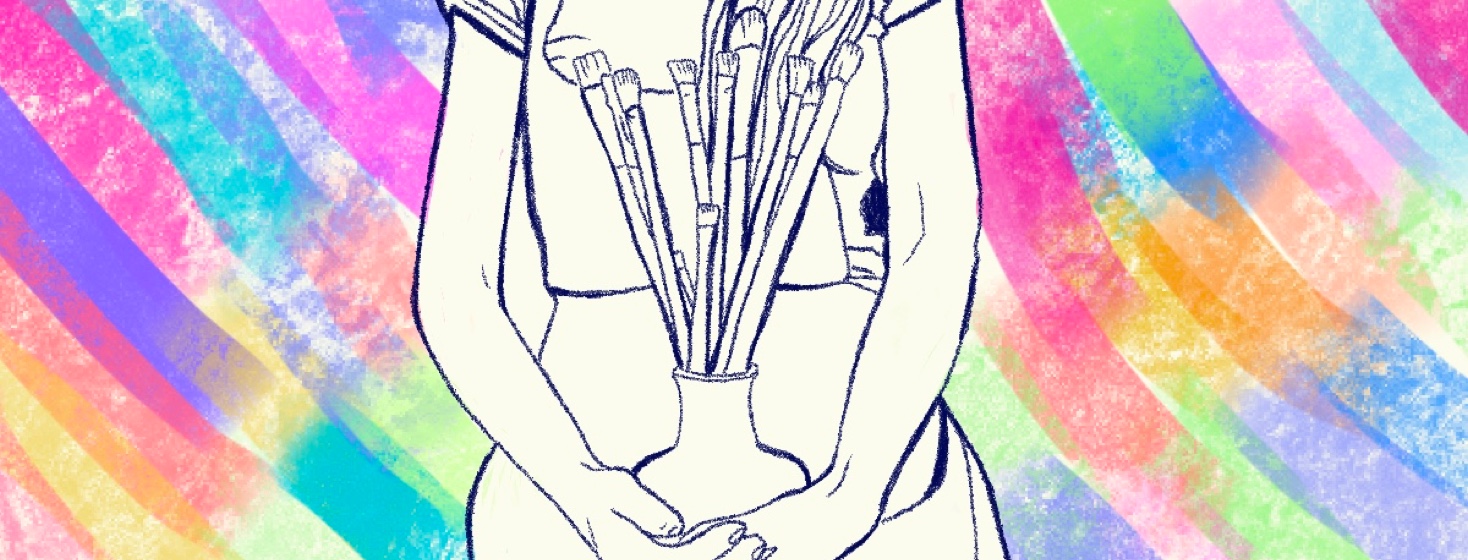Mind and Body: Flare-Up Coping Methods
If there's something I've realized about living with a painful, often unpredictable chronic inflammatory disease, it's that sometimes the disease simply catches you off-guard. And the fact that it catches you off-guard can catch you off-guard — which is to say that the pain has a real way of tapping into your psyche and pressing all the buttons. For me, those buttons are usually sadness and frustration.
And that comes after living with ankylosing spondylitis for a while, working as a chronic illness advocate, and writing health journalism for my job.
In the end, chronic pain and fatigue take their toll no matter how strong or prepared you are. And when you're in the middle of a bad flare-up, where the pain is red-hot and searing, sometimes you just want to curl up into a ball and cry. Oftentimes the grip of seemingly endless pain is combined with severe lack of mobility, eye pain, gut issues, rashes, cognitive slowness, and fatigue that makes getting to the fridge feel impossible.
You are valid
There are a lot of people who don't truly understand chronic illness — especially diseases that aren't necessarily 'visible' (although, in my opinion, when you start to really pay attention to how people move when they're in pain and lack mobility, it's extremely visible — and since when do we need to be bleeding on the floor to be taken seriously?). So on those days when your pain is awful and your family or friends are acting like it's fine — "just take some Advil" or "just do some yoga!"— know that you are valid. Because I said so. Because this whole community says so.
Keep a tracker of any possible triggers
Sometimes, in the middle of a God-awful flare-up, I frantically try to get control of "why" I'm in so much pain — as if I can hack the disease's mainframe. It gives me a sense of autonomy and reflection and helps me start making sense of a disease that can really feel unpredictable.Usually, my main triggers are — in no particular order — alcohol, processed and refined foods (like white bread or cereal), a lack of movement or break in my daily exercise routines, or extreme stress.
Although this can't reverse your flare-up, whenever you're experiencing a brand new wall of pain and fatigue, it might be helpful to take note of anything you did the days beforehand. Alcohol and stress are like ticking time bombs for me. If I over-indulge or don't modulate my stress, I can always expect a flare. That said, sometimes flares last months or weeks — in which case, this method is a bit harder to use.
Know that it's okay to cry
There's this sense that when we live in chronic pain, we should just be used to it. It's normal. It's what we deal with. We have a disease. Move on. I don't agree. Pain isn't something the human body should be used to, no matter how much we do end up getting used to it to some degree. And we shouldn't resolve to become stoics just because this is our lot in life.
If you want to cry, to feel sorry for yourself, and to reach out for help — do it. You're human and this is hard, and when we don't face the darkness we end up imploding into it. Unfortunately, if you live with people who don't get it, this can be really challening. My hope is that you are able to provide them with information about AS so that they do try and become more compassionate.
Do something that distracts you
Even though we should be able to admit the struggle, and to feel worse during a flare-up, it always helps me to take action. No amount of green juices or hot yoga classes are going to magically cure our disease, but sometimes a bit of distraction as you wait out its wrath can help. I like to paint. I'm bad at it (writing is my only skill!) but I pull out a canvas, my paints, and paint until I've calmed myself down. Focusing, in silence, on the paint gives you a chance to calm your mind, breathe deeply into the pain, and refocus the mind. Instead of ruminating on the pain and feeling anxious about the disease, I try to let the colors work their magic.
What are your emotional coping methods?

Join the conversation